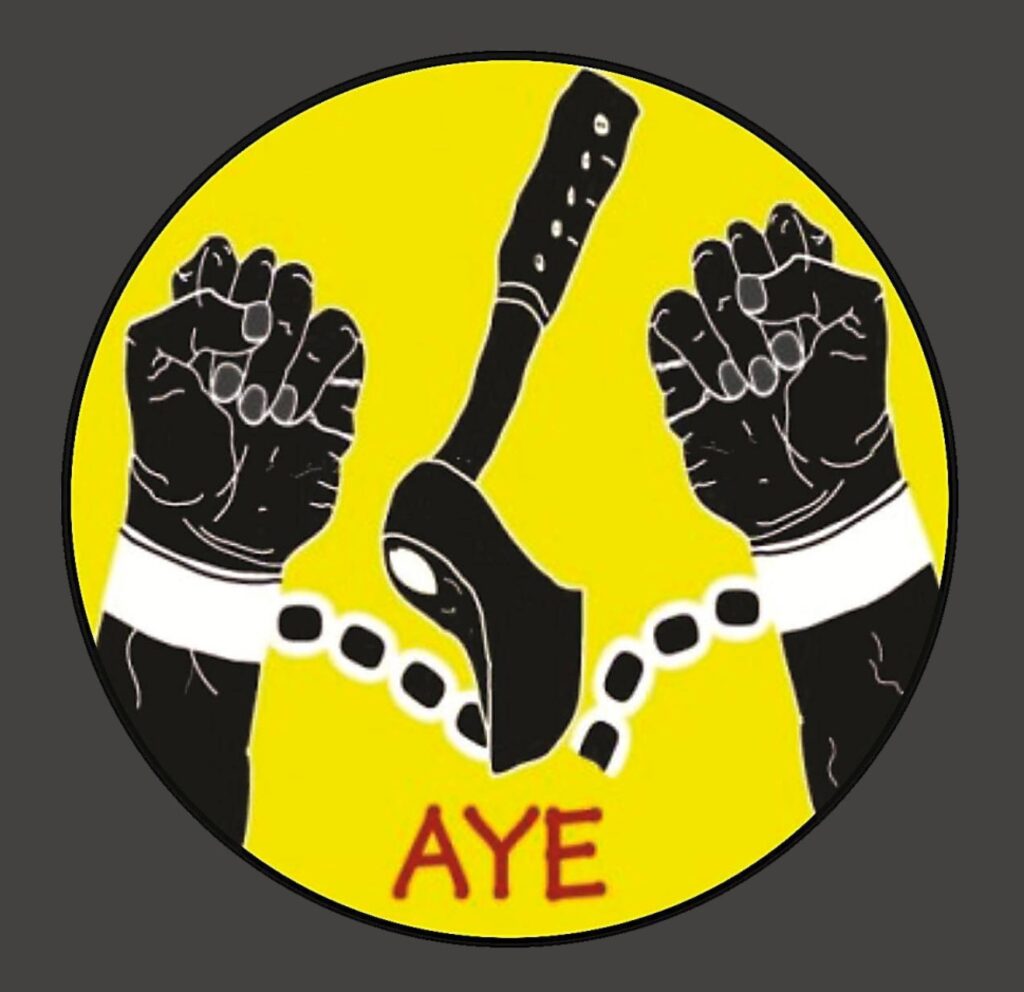Did you know that cultism in Nigeria actually started as a special positive movement across Nigerian universities? It was in its expansion that it lost its focus and started evoking negative emotions.
Cultism in Nigeria has become part and parcel of our daily lives. The uncontrollable growth and spread stemmed from the government’s inability to suppress unlawful activities and also the greedy ambitions of leaders to assert dominance over the masses and their competition.
It is a national plight, and like a virus, has spread through the highest ranks.
Cultism in Nigeria has deep roots in Godfatherism. These power mongers use cultists to seize economic resources through violence, disturb electoral processes and extort the “normal” man.
Let’s disregard the governmental use of cultism for a moment and take a walk through memory lane to understand the history of cultism in Nigeria, its inception, and at what point the whole movement took a wrong turn.
SEE: Corporal Punishment and Child Abuse: Where to Draw The Line
History of Cultism in Nigeria

The father of cultism in Nigeria is Wole Soyinka. In 1952, Wole Soyinka formed the very first student fraternity in Nigeria.
We would no more be using the word “cult” for the moment. Wole Soyinka termed the group “fraternity”. The idea of fraternity was born in the pre-independence period, as it sought to ensure that alienated students felt that they were part of society.
It also aimed to curb elitist mentality and privileged people who considered themselves inheritors of the colonial mandate. Wole’s vision also included giving students a new sociologist consciousness. This was a righteous move and idea.

He wasn’t the only founding father of cultism in Nigeria; there were six others who supported this mission and vision. They formed the Pirates’ Confraternity or the National Association of Sea Dogs.
Admission into the confraternity was based on academic excellence and social-political associations. They were against violence and maintained an open and honest running of the confraternity.
This blissful association went on for about 20 years until the eventual misconception.
Now that you know a bit of the back story, let’s get into the story of how cultism in Nigeria went from a noble movement to a knife in the back of Nigerians and Nigeria.
SEE: Rigging Elections in Nigeria: A Political Masterclass
The ideological misconception of Cultism in Nigeria
We can trace the ideological misconception to the strict running of Wole Soyinka. He expelled members for lack of discipline and others were not satisfied with the running of the confraternity.
Fast-forward to 1972; two members of the Sea Dogs, Bolaji Carew, and Kunle Adigun decided it was the right time to form their confraternity.
Drumroll, please…

They called it the Buccaneers.
I know right, it doesn’t sound as good as Sea Dogs. One can easily predict the ideological difference in their goal. They wanted to uphold the Pirates’ wrongdoings, and with time, others felt the need to break away and form their confraternities.
This was the beginning of the dark dawn of cultism in Nigeria. Their motivation stemmed from rancor, personal competition, and rebellion. And in 1980, there was an astronomical rise in the number of confraternities and the inception of cultism in Nigeria.
There are times when one can mistake a cult for a confraternity and vice versa. So, let me turn on the light and enlighten you.
Difference between confraternity and cult
Confraternity is a brotherhood or sisterhood with a shared cause or profession. They usually have a charitable or religious purpose e.g retired soldiers, students, biographers, etc.
Cults, however, or cultism as a practice, is a secret organization that keeps its activities and memberships hidden from the public. They prioritize secret initiations and other forms of rituals.
This was an unwanted transition that would eventually birth criminal enterprises like fraud, kidnapping, murder, armed robbery, rape, drug trafficking, extortion, public nuisance, etc. The movement was highjacked from Soyinka and cultism in Nigeria became synonymous with as many terrible vices imaginable.

SEE: Woke Culture: All You Need to Know
The inception of cultism in Nigeria
The several breakaways of the original confraternity members were the inception and birth of cultism in Nigeria. There are several examples of these breakaway cults:
Black Axe

The Black Axe was founded in 1977/1978 in UNIBEN by nine undergraduates who were supposedly concerned about the condition of the black man.
Their goal seems noble until you know of their several violent doings including the Obafemi Awolowo massacre.
Black Beret
Black Beret broke away from Black Axe. Their “supposed” idea was to combat the other bad cults in Enugu State University of Science and Technology. They were founded in 1981.
There are many other cultist groups which include;
- Trojan Horse
- Second son of Satan
- Gentleman Club
- Jewish Confraternity
- Dreaded friend of friends
- Vikings
- Black bra
- Badoo
- One million boys
- Ten million boys
- Downtown boys
- Shaggy boys
- Owó ni kókó
- Ó sán lé
This uncontrollable growth birthed what we know as cultism rivalry in Nigeria. Cultism rivalry is responsible for a lot of sinister, and uses secret activities such as code words and colors to conceal their identity.
Whew, that’s a lot of information.
To summarize all I’ve said, cultism in Nigeria was a mistaken deviation from the normal goal of a confraternity. They have since had a negative spiral effect on man and have continued to negatively affect the normal activities of man.
READ ALSO: PEER PRESSURE: HOW TO DEAL WITH IT
Negative effects of cultism in Nigeria
Drug abuse

This is a common effect of cultism in Nigeria. Members of cult groups go through devious initiation processes which can be gory. After much practice, they are also encouraged to participate in hard drugs like cocaine, and marijuana.
They overuse these drugs to compete with their very rigorous lifestyle, leading to abuse and eventual addiction.
RELATED: SUBSTANCE ADDICTION AND HOW TO DEAL WITH IT
Societal nuisance
This is an expected consequence of cultism in Nigeria. Participants feel they are above societal laws and therefore constitute a nuisance in society. Cultism has the backing of various political powers which promotes violence.
In Nigeria, you can have a physical testimony of this in the way road thugs handle bus drivers.
READ ALSO: FUNNIEST NIGERIAN TRAFFIC RULES
Unaccomplished life goals
Woe unto the day one decides to join a cult.
The hierarchy in cultism places so much pressure on the lower members to please and do the bidding of those above. The urge to perform a successful service can completely distract one from their life goals.
The cult’s goal becomes your goal and your life is not yours to control anymore. Several dreams have been tampered with by cultism and many more to come.
CHECK: THINGS TO MASTER TO BE SUCCESSFUL IN LIFE
Loss of family lives

I mean this literally, figuratively and any other “ly”. No one likes to associate with a known cult member. They’d rather stay clear from them and cut off any form of relationship. That is one example of losing family lives.
Another example of losing family lives is the scary story of how the elder cultist look for atonement for the sins of their subsidiaries. Many cultists sacrifice their families even if they don’t want to.
SEE: Naijanomics: What it is, and How to Know if You’ve Been Infected
Mental illness
This proves the fatal effect of cultism in Nigeria and the world at large. Most cultists cannot bear the burden of the losses, drug addiction, societal discrimination, and broken dreams.
This puts their mind under stress and ultimately results in mental illness.
Other effects of cultism include;
- Inability to complete education
- Death
- Deficient morals
- Living in fear
- Spiritual attack
RELATED: MENTAL ILLNESS: CAUSES AND PERCEPTIONS IN NIGERIA
Conclusion
I feel more gloomy presently than when j was writing an article on Type D personalities yesterday. Cultism in Nigeria is a nationwide dilemma and there are several unjustifiable reasons that members choose to join.
- There are a few solutions to cultism including personal enlightenment through informative seminars. It is impossible to rid Nigeria of Cultism, but we can do better at creating awareness among the younger generations.
- MORE IN THIS SERIES:
- 8+ Reasons Why People Join Cults In Nigeria
- One Chance: The Devil’s Snare
- The Rash Called Political Thugs in Nigeria





